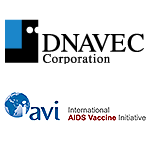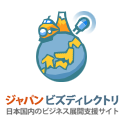The clinical trial of the new AIDS vaccine candidate by the Japanese technique starts in Africa
- Listed: 04/04/2013 12:16 am
- Expires: This ad has expired
NEW YORK, NY; April 1 2013. The International AIDS Vaccine Initiative (IAVI) and DNAVEC announce the start of a multi-center Phase I clinical trial to evaluate the safety and tolerability of a novel preventive HIV vaccine candidate, SeV-G. Researchers also seek to obtain a preliminary assessment of the immune responses elicited by a prime-boost regimen of SeV-G and a vaccine candidate based on adenovirus serotype 35. This clinical trial is the first ever to test SeV-G.
Vaccinations in the trial, which is sponsored by IAVI, commenced today at Projet San Francisco in Kigali, Rwanda. The trial will also be conducted at the St. Stephen’s Center in London, United Kingdom and, pending final approval, at an additional research center in East Africa.
Developed by IAVI and the Japanese biotechnology company DNAVEC, SeV-G is a novel, replicating viral vector that targets mucosal tissues. It is derived from a weakened form of the Sendai virus, a virus related to the measles and canine distemper viruses. It ordinarily infects rodents, and is not known to cause human disease. The SeV-G vector carries the gene for the gag protein of HIV as a vaccine antigen. Unlike the vast majority of HIV vaccine vectors evaluated in trials so far, SeV-G retains the ability to multiply inside the human body. Researchers expect that replicating vectors might be able to elicit immune responses that are broader, longer lasting and more potent than those elicited by non-replicating vectors bearing similar HIV antigens.
Researchers will use nasal drops to deliver the vaccine candidate to volunteers. By doing so, they hope to induce immune responses to HIV in mucosal tissues, which line inner body cavities, including the respiratory tract. It is within such tissues, primarily in the gut, that HIV establishes a foothold in the earliest stages of infection. Researchers expect that a vaccine candidate that targets immune responses to mucosal tissues could prove more effective in preventing HIV infection.
The second component of the vaccine regimen, Ad35-GRIN, is a non-replicating vector developed by IAVI and its partners that carries genes for the HIV proteins gag, reverse transcriptase, integrase and nef. The Ad35 candidate, which is delivered via intramuscular injection, has been evaluated in three other IAVI-sponsored clinical trials in Africa and North America. It has been found to have a favorable safety profile, to be well tolerated, and generates immune responses against the HIV proteins it encodes.
The current Phase I trial, named S001, aims to enroll about 64 healthy volunteers between the ages 18 and 50. The trial is expected to take roughly 2 years to complete. Data from this study will determine whether IAVI and its partners continue to develop the candidate vaccine regimen.
About Sendai viral vector
Sendai virus vector (SeV) technology was engineered by DNAVEC and Dr Yoshiyuki Nagai (then at the Institute of Medical Science, University of Tokyo, IMSUT). Dr. Tetsuro Matano, a chief scientist of the SeV vaccine development program at IMSUT and the National Institute of Infectious Diseases, in collaboration with DNAVEC, demonstrated that intranasal administration of a SeV vector-based vaccine candidate can protect against infection with SIV (the simian version of HIV) in a non-human primate model; this research is continuing.
About AIDS vaccines
An AIDS vaccine is urgently needed to help control the AIDS pandemic and stop the spread of HIV. Worldwide, 33 million people are living with HIV, and 7,000 people are newly infected with the virus every day. Clinical and laboratory evidence suggests that the immune system can be harnessed to prevent or control HIV infection. The effort to develop an AIDS vaccine is informed by that evidence and driven by partnerships between academic, government, commercial and non-profit institutions from around the world, working together toward the common goal of ending AIDS.
About IAVI:
The International AIDS Vaccine Initiative (IAVI) is a global not-for-profit organization whose mission is to ensure the development of safe, effective, accessible, preventive HIV vaccines for use throughout the world. Founded in 1996, IAVI works with partners in 25 countries to research, design and develop AIDS vaccine candidates. In addition, IAVI conducts policy analyses and serves as an advocate for the AIDS vaccine field. IAVI supports a comprehensive approach to addressing HIV and AIDS that balances the expansion and strengthening of existing HIV-prevention and treatment programs with targeted investments in the design and development of new tools to prevent HIV. IAVI is dedicated to ensuring that a future AIDS vaccine will be available and accessible to all who need it. IAVI relies on the generous donations from governments, private individuals, corporations and foundations to carry out its mission. For more information, please visit www.iavi.org.
About DNAVEC:
DNAVEC Corporation is a private venture company originating as a Japanese national project supported by the Japanese Ministry of Health and Welfare. DNAVEC Research Inc., the predecessor of DNAVEC Corporation, successfully developed an innovative vectors system, which is expected to become an indispensable device for gene therapy and gene vaccines. Sendai virus vector is one such vector. Functioning as RNA, not DNA, this vector has the benefit of not damaging the cell’s chromosome. The company has obtained a number of international patents on these vectors and their use. DNAVEC is currently promoting multiple joint research and development programs with national and global research institutes and pharmaceutical companies. Kyushu University Hospital concluded a Phase I/IIa clinical trial on the gene therapy research for severe ischemic limbs using the Sendai virus vector in 2010, confirming the safety and the possible effectiveness of this therapy. Vaccines against other infectious diseases are also under development. In the field of cell therapy and regenerative medicine, we have developed a system to administer pluripotent stem cells (iPS) efficiently, which is marketed as CytoTune™-iPS domestically and globally, and applied widely in drug development. As Japan’s first viral vector for gene therapy, the Sendai virus vector also has great potential for application in cell engineering, cell therapy and regenerative medicine. For more information see www.dnavec.co.jp.





